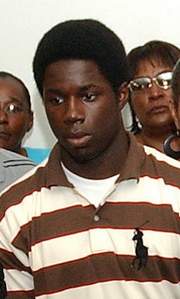La. tells HHS it won't run insurance exchange
Associated Press
Health and Hospitals Secretary Bruce Greenstein mailed a seven-page letter telling the U.S. Department of Health and Human Services that Louisiana will leave it to the federal government to run the state's health insurance exchange.
The letter also outlined the Jindal administration's continuing opposition to the entire law, which was upheld by the Supreme Court earlier this year.
"The State of Louisiana has repeatedly stated that the law has severe legal problems, is bad policy and is unworkable. Those beliefs remain unchanged," Greenstein wrote to HHS Secretary Kathleen Sebelius.
The exchanges, scheduled to launch in January 2014, will allow people and small businesses to shop for private coverage from a range of competing insurers. They are supposed to be ready to begin enrolling people in October 2013.
Jindal, a Republican who is considered a possible White House contender, has sought repeal of President Barack Obama's signature health care law, calling it an inappropriate expansion of the federal government and a burdensome expense for the state and businesses.
In his letter, Greenstein revisited those complaints, laying out pages of point-by-point criticism. He called the health care law unjust taxation, said it will undermine the private health care marketplace and claimed it will weaken job creation at private businesses.
"The full extent of damage the (health care law) causes to small businesses, the nation's economy and the American health care system will only be revealed with time," Greenstein wrote. "The State of Louisiana has no interest in being a party to this failure by implementing a state based exchange."
He said the health insurance exchanges have unrealistic deadlines and unclear regulations.
The exchanges are supposed to be set up with federal money and then sustained through taxes and fees on the insurance products.
State Sen. Karen Carter Peterson, the head of the Louisiana Democratic Party, tried unsuccessfully to get the state to run its own exchange. She said it doesn't make sense for the state to opt out of creating its own system that fits its local markets, instead of using a one-size-fits-all model.
Insurance Commissioner Jim Donelon, a Republican who supports the concept of an exchange though not the Obama health law, echoed similar concerns Wednesday about using an exchange model not created specifically with Louisiana in mind.
"When the feds build the exchange, they will build it according to their political agenda and that gives me concern as a person who would not have voted for what I consider to be a program headed in the direction of national health care," Donelon said.
But he noted the decision of whether Louisiana would run its own health insurance exchange was not his, but Jindal's choice.
Louisiana, which was one of 26 states that unsuccessfully sued to throw out the health revamp, earlier had decided to let federal officials run the high-risk pools for people who have pre-existing medical conditions and can't afford the costs of private insurance plans.
Before the presidential election, Jindal also said he won't let Louisiana participate in another part of the Obama health care law, refusing to expand the state's Medicaid coverage to give more people health insurance.
Since Obama's re-election victory, the governor hasn't responded to questions about whether he'll change his stance now that efforts to repeal the national health care overhaul are expected to go nowhere.
Study: Income inequality continues to grow in La.
Study: Gap between rich and poor in Louisiana continues to grow larger, among worst in nation
The richest 5 percent of households in Louisiana have average incomes more than 14 times larger than the bottom 20 percent of households, according to data from two Washington, D.C.-based think tanks, the Center on Budget and Policy Priorities and the Economic Policy Institute.
The groups advocate for low- to moderate-income families.
Louisiana has the sixth-widest gap in the country. States with higher income disparity, the study says, are New Mexico, Arizona, California, Georgia and New York.
Average household income for the poorest 20 percent of households in Louisiana grew less than 10 percent since the 1970s, compared to 62 percent for the richest 20 percent in the state, according to the report.
Jan Moller leads the Louisiana Budget Project, the state arm of the Center on Budget and Policy Priorities. He says he hopes the report is a "wake-up call to legislators and policymakers" as Gov. Bobby Jindal intends to push a revamp of Louisiana's tax code in the next regular legislative session.
Jindal: Obama re-election won't change path in Louisiana
BATON ROUGE (AP) — Republican Gov. Bobby Jindal is congratulating President Barack Obama for his re-election victory, while saying that won't change his course in Louisiana.
Jindal issued a statement that said, "Here in Louisiana, we will continue to do what we have always done, and that means standing up for our people and doing what we think is right no matter who is president."
Louisiana's governor campaigned across the country for unsuccessful GOP presidential nominee Mitt Romney, who Jindal also congratulated for running a "strong race."
Jindal didn't comment on what the election results mean for the future of the Republican Party, saying there's plenty of time to do that later.









